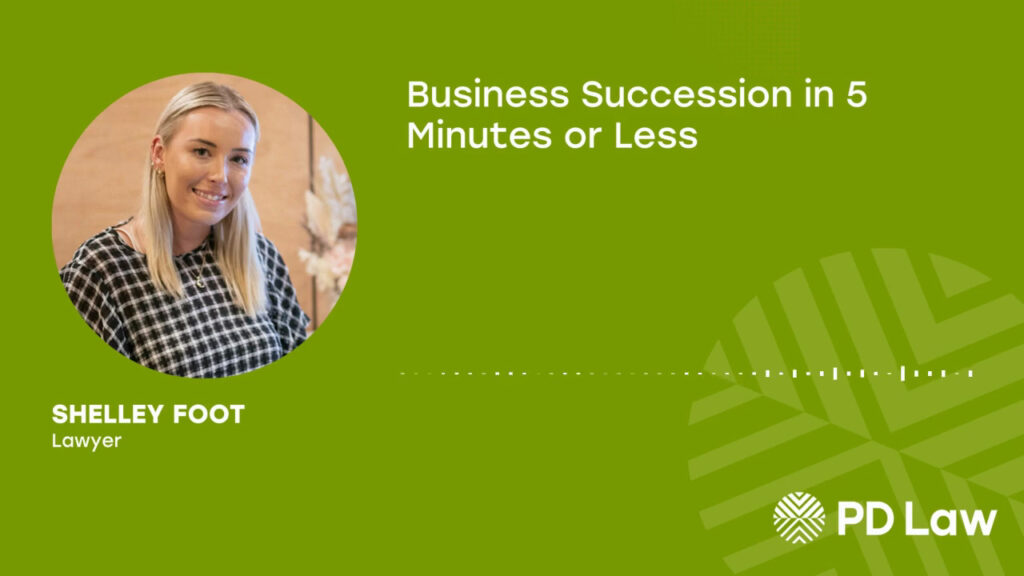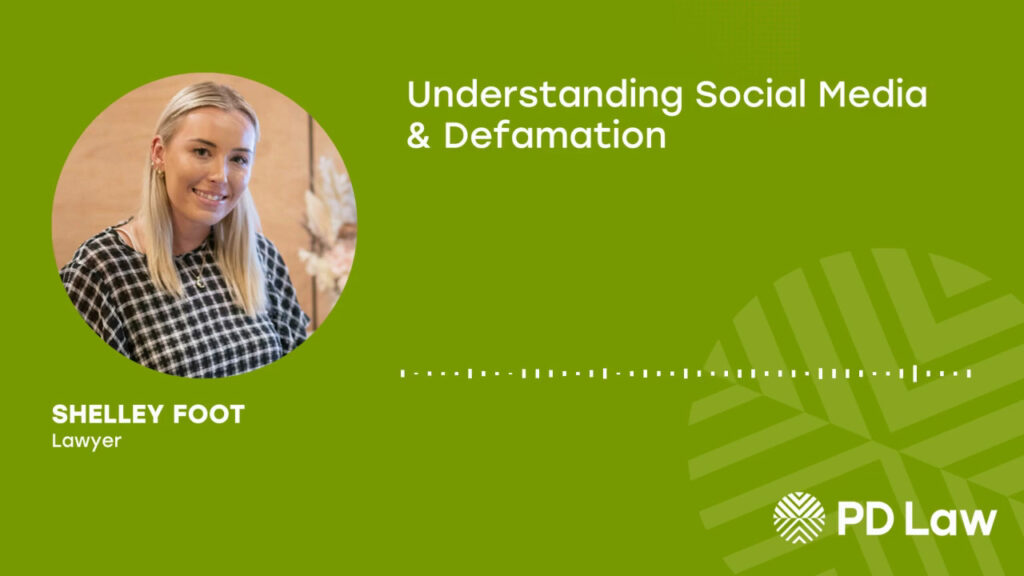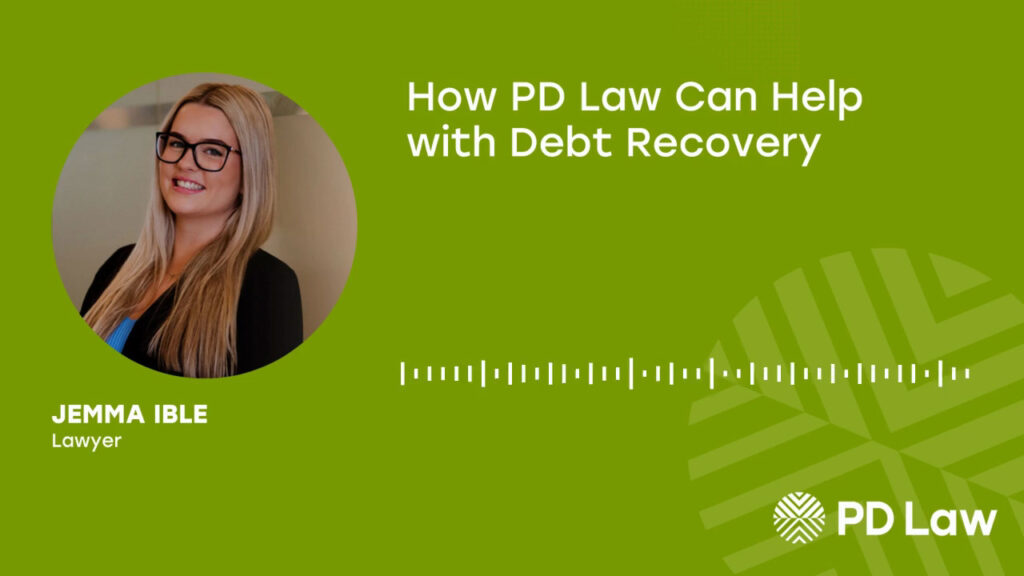If you have been pulled over or questioned by Queensland police then you know it can intimidating. When it comes to police questioning, many people are unaware of their legal rights or assume that what they’ve seen on American crime shows that you have the right to remain silent basically applies in all circumstances in Australia. In this podcast, PD Law Associate and Criminal Lawyer, Peta Vernon, discusses what you need to know if you have been pulled over or questioned by QLD police.
Transcript
Dan: Welcome to this edition of the PD Law podcast. If you’ve ever been pulled over or questioned by Queensland police, then you know it can be intimidating. When it comes to police questioning, many people are unaware of their legal rights or assume that what they’ve seen in American crime shows that you have the right to remain silent basically applies in all circumstances in Australia. Well to find out, I’m with PD Law criminal lawyer Peta Vernon. Peta, if somebody is questioned by Queensland police, do they actually have to answer the questions?
Peta: There is so much confusion surrounding this topic, I guess, with people in general and, short answer is you absolutely do not have to talk to police if they want to question you regarding an incident.
Police have certain powers under the Police Powers and Responsibilities Act. One of those powers is to direct a person to do a certain thing and, anybody who’s been pulled over for a random breath test or something like that may recall the spiel that police give and its, Good evening my name is Senior constable, Joe Blogs and registered number, blah, blah, blah, blah, blah, I direct you to blow into this and do this until I say stop. That’s a direction and that is something that you must comply with, with police.
If you fail to comply with the direction, then you may be charged with an offence. Now, police cannot direct you to give an interview in relation to any matter. Now, they may give you a phone call and say, Hey, I’ve heard you’ve been involved in this incident, or, We’re investigating this incident, and we’d like to invite you to come down to the station to have a chat about it. Sounds simple enough, doesn’t it? Sounds innocent enough. The amount of people who fall foul of that is ridiculous. Because ultimately, what police are asking to do is interview you and generally, you say no. By all means, go down to the police station.
Because if they want to interview you about something, they’re going to find you. They are going to come to your home or wherever, and they’re going to seek to interview you and maybe take you back to the station or something like that. So go down there, they’ll ask you your name and your identifying particulars and everything like that. But when they come to the question, so we’re investigating X, Y, Z, and we want to question you in relation to that, all you need to say is I decline to be interviewed.
Now, a lot of people think that they have nothing to hide or perhaps there’s no harm in giving interview. Generally speaking, yes, there is, and unfortunately, yes, you do have something to hide because whatever they ask you and whatever you say in that record of interview is recorded, of course, and they will use it down the track if they can. I have represented several people who would not have not have been charged but for the interview they gave with police.
Look, no, you do not have to be interviewed, and it cannot be taken as an admission of guilt or that you’re hiding something later on down the track. Because chances are, if police want to interview you about something, then they’ve already made their mind up and they’re probably going to charge you anyway.
There are exceptions to that, of course. On the very rare occasion, Police genuinely do just want to have a chat, and it could be that by having that chat with them, that it clears up any discrepancy or whatever it is that they wanted to find out in the first place, that is the exception to the rule. Number one rule, ring your lawyer first.
Dan: Now, in the circumstance where that person might actually want to talk to the police, should they have a lawyer present with them?
Peta: Yes, yes, yes, yes, and yes. The reason for that is that your lawyer will be able to recognise the direction that the questioning is going and whether the answer to a particular question might just put you right in it. Whilst police and the questions that they’re asking might be seemingly innocent to you and you’re thinking that, oh well, I’m just clearing the air here and I’m clearing up a few discrepancies, it is not always the case. So, your lawyer can jump in and go, no, no, you don’t need to answer that. Before questioning, police are required to administer you with your rights and cautions, you have the right to remain silent, blah, blah, blah. It is nothing like the movies, so don’t expect the law and order theme to be playing in the background.
It is simply the case that they tell you that you have the right to remain silent, you have the right to phone a friend, you have the right to do X, Y, Z. One of those rights is to telephone a lawyer if you want that lawyer present during questioning, and police must delay questioning for a reasonable amount of time to allow that to happen. So if it is the case that you decide to question and that is your right, then yes, you absolutely should have your lawyer there.
Dan: Now, what are the police responsibilities in relation to actually interviewing intoxicated people?
Peta: This is another topic that’s governed by the Police Powers and Responsibilities Act and I’m not sure if I gleaned on earlier, but the PPRA, the Police Powers and Responsibilities Act, is the act that governs what police can and can’t do, essentially, and one of those things that’s covered off in it is the questioning of intoxicated people. It comes down to police observations of a person at the time when they want to question them.
So it comes down to, is it obvious? Is this person clearly of an intoxicated state that their ability to understand the rights and cautions that I mentioned earlier, is their ability to understand those cautions impaired at all? It comes back to the “reasonable person test”. They’ve got to be reasonably satisfied that this person can understand the questioning that they’re about to undergo and it’s a case by case basis, so a lot of people can be fairly intoxicated but still have their scruples and they can still understand what’s going on. I mean I guess if you look at a person and they’re slurring their words and they’re all over the place and everything like that, and police still push on with questioning them, well, that interview, therefore, needs to be called into question.
So there’s certain questions that the police need to ask after a person’s rights and cautions are administered, so they have to then turn back to the person and say, what do you understand that to mean? They’ve got to be satisfied that not only has the person heard what it is that their rights and cautions are, but that they also understand them. Because obviously, three drinks to one person might be incredibly different to three drinks to another.
So it’s not, ah okay, you’ve had this many drinks, so you, therefore, can’t be interviewed, it’s observations of the person and the whether the police is satisfied that, that particular person understands that they actually have the right to refuse to be interviewed. Sometimes police opt to put the person that they want to interview, they opt to put them on the breath device. But that’s always sometimes not a good indication either, so it’s difficult to say. But generally speaking, if a person is too intoxicated and it can and may be found by the court that they did not understand that they did not have to give an interview, then that interview can be disallowed, and obviously, that would therefore be crushing to a police case.
Dan: Now, if that person actually isn’t under arrest, can they walk away?
Peta: I’m going to give you a very lawyerish answer now and say it depends. A police officer can place you under arrest for something, but they can also detain you as well. The difference between the two is not great. A police officer will place you under arrest if they suspect that you have committed an offence or they want to make inquiries in relation to that offence, or if they want to stop the continuation of an offence, and while you are under arrest, you must follow all lawful directions of police at that time.
Likewise, with being detained by police, police can detain you for up to eight hours in relation to the investigation of an offence, there are a lot of other rules surrounding that that I won’t go into now, but they certainly can detain you for a considerable period while they investigate an offence, and while you are under their detention, you must follow, again, all of their lawful directions. So generally speaking, unless you’re under arrest or under detention, I guess, loosely speaking, you can walk away. Is it a good idea? Probably not.
Dan: Peta, if anyone listening to this podcast has got some questions, can they reach out to you and the team at PD Law?
Peta: Absolutely they can. We are blessed at PD Law with a team of criminal lawyers who are genuinely good at what they do, they’re passionate about what they do, they do the right thing by their clients, and they are certainly not going to lead you down the garden path so look us up.
Disclaimer: This podcast has been transcribed using AI. There may be errors that were lost in the translation.



